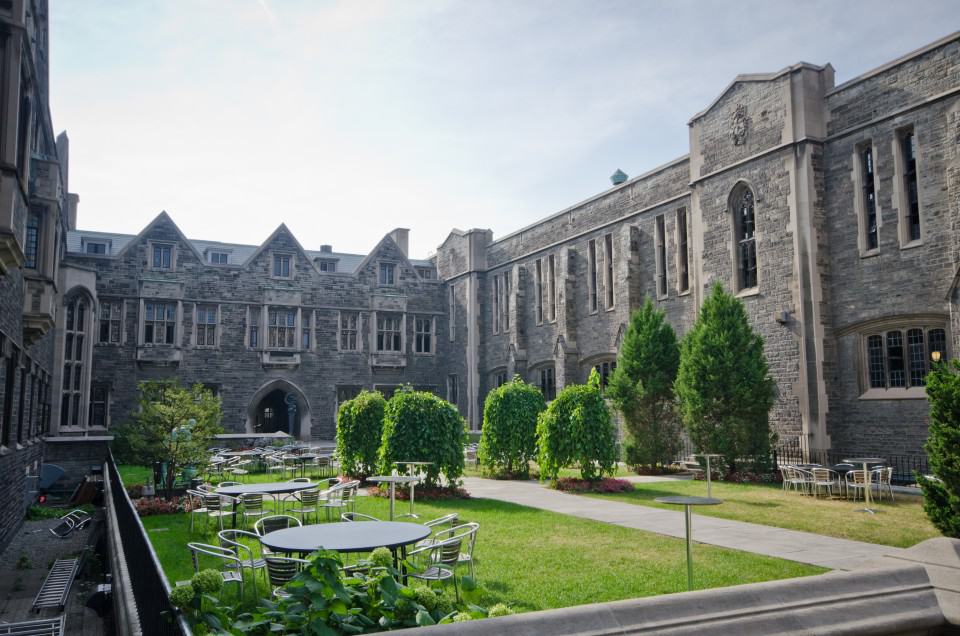Hart House’s “Transforming Sport: LGBTQ Athletes in Conversation” panel discussion couldn’t come at a better time. With the Pan Am gam games right around the corner, the recent banning of conversion therapy in Ontario, and the headlines surrounding former world-record holding decathlete and Olympic gold medal winner Caitlyn Jenner, the discussion of those who are marginalized within the sporting world is a topic that desperately deserves discussion.
The panel, hosted at Hart House and in conjunction with the Sexual and Gender Diversity Office, was an opportunity for U of T faculty, students, and staff to discuss the transformation of sport. These conversations included talks from former NCAA basketball player Kyle Allums and Canadian Olympian Rosie Cossar — both of who self-identify as LGBTQ.
“There is lots of evidence that LGBTQ athletes are still experiencing quite a lot of stigma, discrimination, homophobia, and transphobia in sport,” asserts Allison Burgess, an officer at U of T’s Sexual and Gender Diversity Office, adding, “the stigma of identifying as an LGBTQ athlete is still quite challenging for many.”
Although there is significant progress being made towards the freedom and safety of those who identify as LGBTQ — especially in the world of sport — there still exists a reluctance to end the stigma. This stigma can be particularly hard for athletes to navigate and overcome — an issue that can be compounded in locker-room situations.
“Change room spaces are weird and complicated spaces” says Burgess, who is also quick to note that the sporting world is not the only group of people who stigmatize those who identify as LGBTQ. She goes on to say that, “Locker rooms are very complicated spaces…But the concerns are particularly about a culture that exists in some sport that continue to stigmatize LGBTQ athletes.”
This is one of the reasons why the panel series works well. In conjunction with Hart House’s “The Change Room Project” — an initiative drawing awareness to the experiences students have had in the locker room — the discussion will undoubtedly help liberalize the conversation about not only LGBTQ athlete-specific stigmas, but also help every athlete become more confidant navigating spaces, like the locker-room, which can make anyone feel nervous or vulnerable.
The panel, although a great start for opening-up lines of dialogue, is only one of several resources available to students at U of T, regardless of whether or not they are athletes. Burgess explains that the Sexual and Gender Diversity Office is always available to students, but, ultimately, how to deal with sexual and gender identity is a personal decision.
“Every person should decide for themselves what feels right, what feels safe, and where they can go to get the support they need, regardless of their decision,” she says. A decision which hopefully can be made easier and more informed thanks to discussion and conversation.
Transforming Sport: LGBTQ Athletes in Conversation takes place on June 19 in Hart House’s East Common Room. Tickets are free but space is limited.


